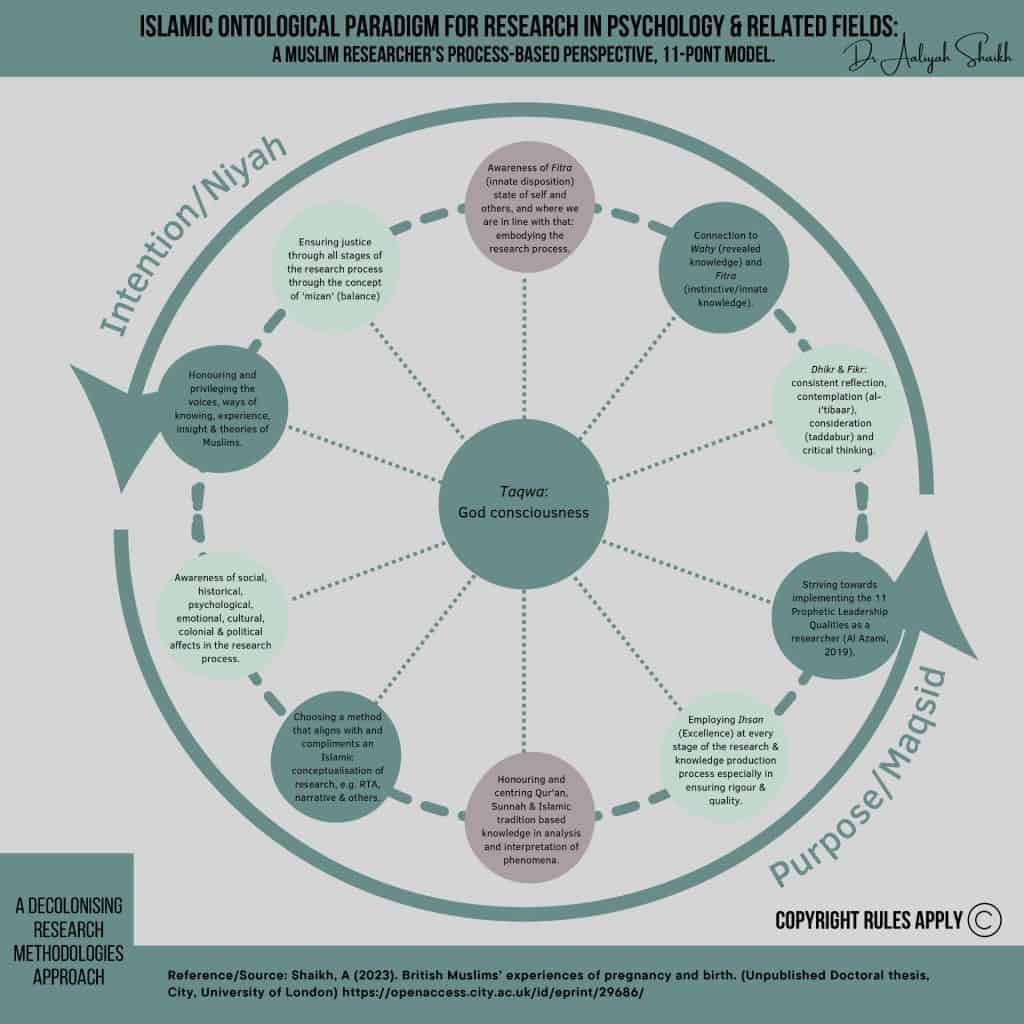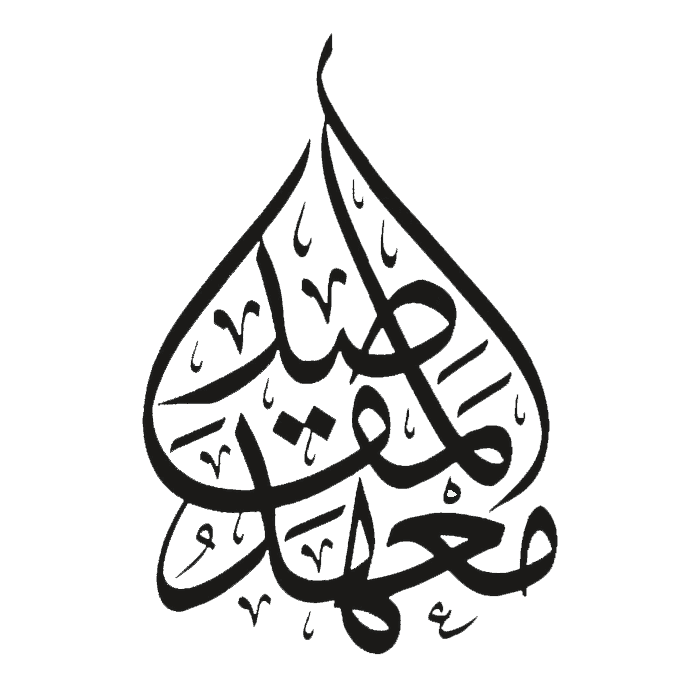by Dr. Aaliyah Shaikh
Any scholarship endeavour is defined by its values and processes, which are inherent in the researcher. As a Muslim academic in the UK who is committed to my faith, I felt it was crucial that I embed my research looking at Muslims’ experiences of pregnancy and birth through an Islamic Ontology for my PhD in Health Psychology. It did not make sense to me to apply other ontologies, philosophies, and methodologies through which to analyse and understand the experiences of Muslims. I did this using a decolonial and trauma aware approach, as well as reflecting on the need for embodiment of the research process embedded in the Islamic tradition.
The thesis itself included an exploration of the role of potential early violence through the medicalization of birth, the impact of obstetric violence, and the particular experiences of a marginalized community that may be experiencing institutional, systemic, racial and Islamophobic discrimination, socio-economic disadvantages, health disparities, and the ongoing effects of colonialism and transgenerational trauma during the perinatal period. Further, I posited the importance of bearing in mind the impact of adverse environments a baby may be born into, and how these could have an impact on the developing child and ultimately adult. The study included a systematic review, and empirical research using qualitative surveys and interviews.
Throughout my research process, I found myself critiquing the idea of how knowledge is constructed and used within the context and realities we find ourselves in, and subsequently what my role would be as the researcher of this study, with its particular challenges and dilemmas. Having highlighted the role of epistemicide and ongoing health and social injustices and inequities in my thesis, this set the context for a decolonial methodologies approach for carrying out empirical research and understanding, interpretation and analysis of data in relation to Muslims’ experiences of the perinatal period. Epistemicide has also be an attack on the psychology of Muslims and has created a disconnect from our healing traditions. This is another reason why it is crucial to frame any study with Muslims being mindful of Islamic ontology and epistemology as part of the process of giving power back, restoration, and healing.
There is increasing consciousness of how our histories have been influenced, distorted and narratives falsely shaped. I started to think about what it could mean for students, researchers and academics if the canon of thought that is consumed in the social sciences and humanities is based largely on a ‘few men’, in a few Western, European countries. Are we (re)producing systems that are epistemically oppressive, socially unjust and which contribute to health inequalities? The questions that recurred for me were of how do we know what we know? Why is the focus mostly on Eurocentric, secular ideas of reality and how to ‘do’ research and science? What are the limitations of this? What voices are missing? What do I not know? How does all this impact on research, science, healthcare and how people experience the world? I think these are questions we all need to ponder on. Thinking about these, while often uncomfortable, ultimately lead to a deeply reflexive and raw piece of research for me.
Much of the dialogue around decolonizing the academy and research in academic institutes is centered around North and South epistemologies demarcated by regions and parts of the world, less so around epistemologies rooted in plural groups who are bound by the culture of religion for example, as I was highlighting in my research. Islam brings with it a complete holistic ontology and epistemology with diversity and plurality within it.
As a result of my research process, considering the most appropriate philosophical and methodological underpinnings, I developed a model which is a visual representation of the elements I think could form an Islamic ontological centering paradigm for use in Health Psychology research and other closely related disciplines (mostly psychology and psychotherapy). This is a guidance ‘map’ of how it would look based on my process and understanding from the experience I gained through my research process (all of the elements are interconnected and circular in the process ):

I hope that sharing how I went about my research process and some of the questions it evoked, as well as insights I gained, will encourage other students and researchers to also take the courage to critique existing ways of doing research and embed research within an Islamic paradigm that is epistemically just and relevant. It’s certainly an interesting and insightful journey!.

